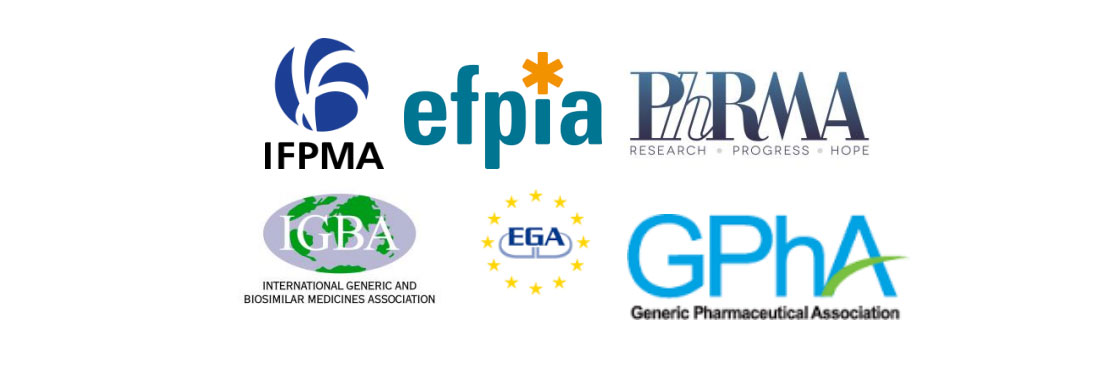Global pharmaceutical associations welcome MEDICRIME convention, landmark tool to curb global medicines counterfeiting

The global innovative and generic/biosimilar pharmaceutical industries welcome the entry into force of the Medicrime Convention and encourage countries worldwide to sign and ratify it.
The Medicrime Convention will ensure international cooperation between the competent health, police and customs authorities and will help to make real strides globally in fighting counterfeit medicines.
This marks the beginning of a new era in our collective efforts to criminalize the production and distribution of counterfeit medicines and to shine a light on a dangerous business that puts patients at risk.
A unique international tool criminalizing the trade of counterfeit medicines, the Medicrime Convention, will enter into force on 1st January 2016, after 5 countries out of its 24 signatories completed the ratification process. The Medicrime Convention, launched by the Council of Europe in December 2010 is opened for signature by all countries in the world and aims to curb what it defines as counterfeit (falsified) medicines, that is medicines whose identity and/or source have been falsely represented.
IFPMA, EFPIA, PhRMA, IGBA, EGA, and GPhA and their members – the global innovative and generic/biosimilar pharmaceutical industries – welcome such a significant development and the role played by the European Directorate for the Quality of Medicines and Healthcare (EDQM) of the Council of Europe. They stand ready to work closely with all those engaged in the fight against fake medicines and share their expertise where they can to help with the implementation and enforcement of Medicrime.
“The fight against counterfeit medicines is gaining momentum. Strong legislative frameworks are necessary to combat counterfeit medicines and Medicrime is a unique tool that can curb this problem, said IFPMA’s Director General Eduardo Pisani. “Medicrime introduces criminal sanctions targeting both those who manufacture counterfeit products and who distribute them. Perpetrators involved in the production and traffic of counterfeit medicines are criminals and should be prosecuted as such.” he explained.
Counterfeit medicines can have the wrong active ingredients, the wrong dose or dangerous substances and could result in drug resistance, further illness or disability or even death. All medicine categories are affected, be it originators’ or generic, prescription-only or over-the-counter medicines.
“Counterfeit medicines, which are mainly linked to organized crime, have considerably grown in recent years, given the high profits and opportunities offered to criminals, including through the spread of e-commerce. Yet, in many countries, the trade of counterfeit medical products is even less sanctioned than selling narcotics for instance and such impunity does come at the detriment of patients’ health”, said EFPIA’s Director General Richard Bergstrom.
“Counterfeit medicines are a serious public health threat.” IGBA Chair Jim Keon said. “This international tool can help strengthen the global pharmaceutical supply chain to stop the spread of counterfeit medicines and ultimately protect patients”.
Global pharmaceutical associations share the view that there is a global shared responsibility to tackle the issue effectively and promptly. All associations join forces to protect patients, by improving product security through, e.g., the European Medicines Verification System, and by raising awareness about the dangers of counterfeit medicines, as does the Fight the Fakes campaign which gives a voice to the victims and shares the stories of those working to put a stop to this threat to public health.
“Counterfeit medicines frustrate the concept of quality of medicines. Where quality is not ensured, patient safety is at risk” said Adrian Van Hoven, EGA Director General. “Fake medicines are a global concern and people in low- and middle-income countries are especially at risk. The proportion of fake medicines is as much as 10% globally, while in some areas of Asia, Africa and Latin America, fake medicines may account for up to 30% of medicines in circulation. In Africa, one-third of all malaria medicines are probably fake. This threat requires a multi-stakeholder and multi-disciplinary collaboration both at local and global levels”, he added.
While the entry into force of the Medicrime Convention is a decisive milestone, the fight against counterfeit medicines requires even more widespread support. EFPIA, IFPMA, PhRMA, IGBA, EGA, GPhA and their members encourage other countries worldwide to sign and ratify the Convention.
About IFPMA
The International Federation of Pharmaceutical Manufacturers and Associations (IFPMA) represents over 90 innovative pharmaceutical companies and associations around the world. Our industry’s almost three million employees discover, develop, and deliver medicines and vaccines that advance global health. Based in Geneva, IFPMA has official relations with the United Nations and contributes industry expertise to help the global health community improve the lives of people everywhere. For more information, visit ifpma.org.
Learn more



